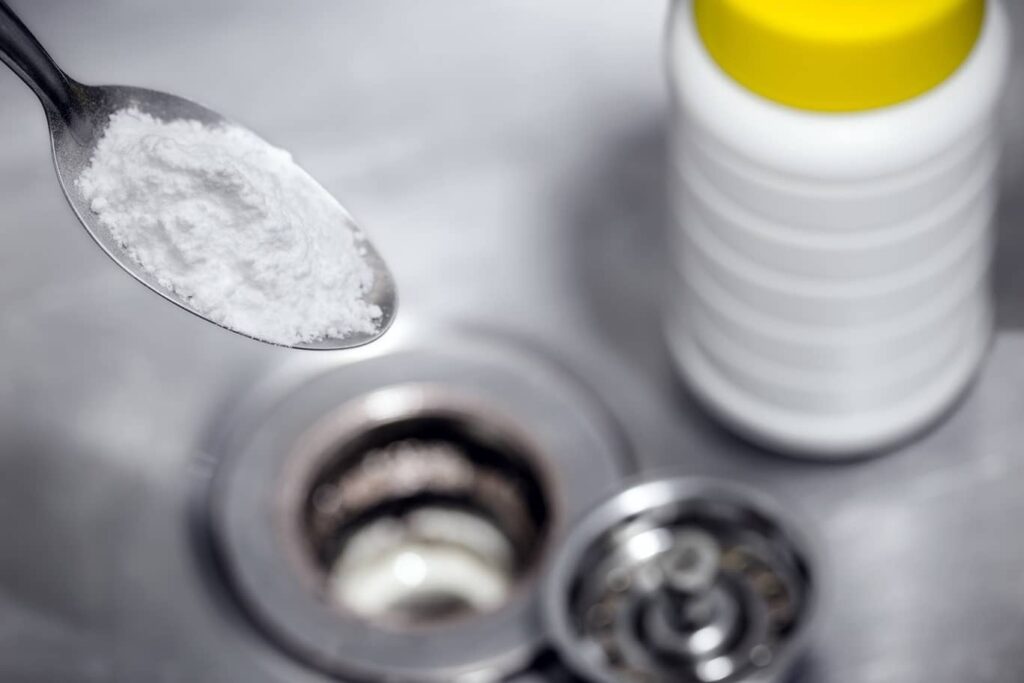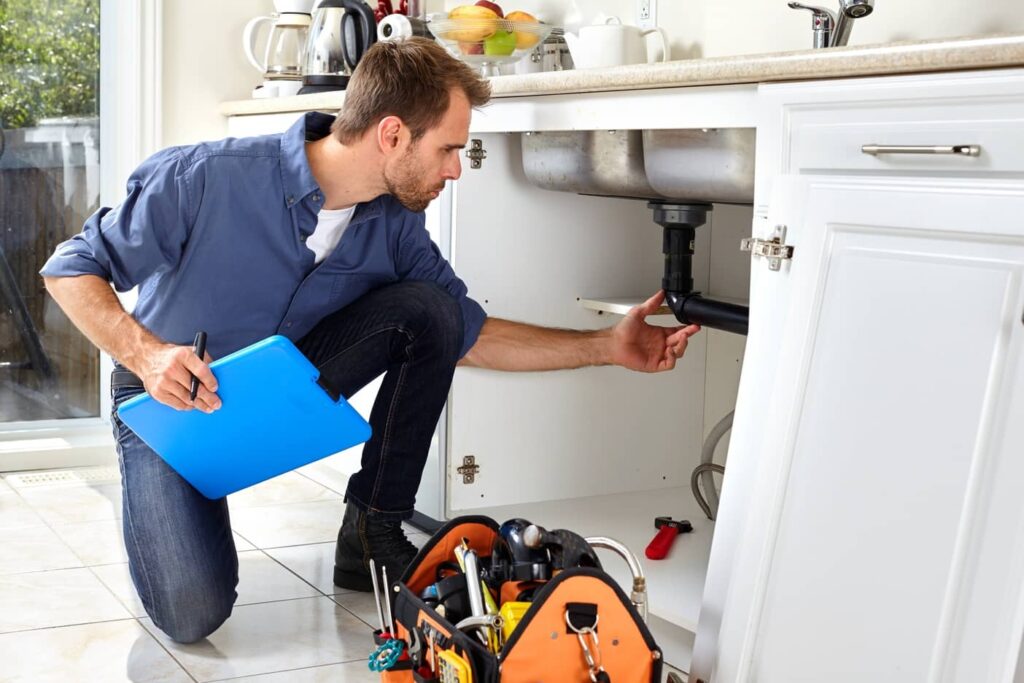A smell coming from the kitchen is typically the sign of some great cooking. Most homeowners pride themselves on cooking or baking up a great meal. The aroma that can come from many delicious dishes can certainly bring back many memories for those whipping up the dish. Unfortunately, under some circumstances smells coming from the kitchen aren’t always so amazing. Why does my kitchen sink smell? There are a variety of reasons such as clogs and rinsing the wrong foods that could cause the smell.
Let’s take a look below at what causes the smell and how we can fix it.
What Is Causing The Smell?
Believe it or not, there are a variety of things that can cause your kitchen sink to smell. Let’s take a look below at what those things might be.
- Mold and Mildew – Leaks that might occur under the sink would cause mold and mildew to form. The smell that you are sensing could be coming from beneath the sink, rather than the sink itself.
- Bacteria – Over time, as you rinse food items and hair down your sink, it will leave a residue on your plumbing. As the food particles and other items begin to stick to the interior walls of your plumbing, bacteria will begin to grow. Even the cleanest sink could provide a bacteria-like smell.
- Clogged Sewer Vent – The gases that are meant to help water flush through your pipes get stopped in the pipes if the vent is clogged. This trapped gas is then released in areas where you have openings in the pipes. Thus, a foul odor is released from the sink as the drainage of food and water is slowed or even stopped.
- Sulfates – Rotten egg smells in your sink are a direct result of sulfates in your water. Although it is an unbearable smell that you typically relate to an outdoor sprinkler system, it is not toxic. Keep in mind that sulfates can cause some digestive problems as well as damage your clothes.
- Plumbing Mistakes – If there is a foul odor coming from your sink after new plumbing is installed or some plumbing work has been completed, it is likely due to a mistake. Mistakes in plumbing that could occur are leaking pipes due to poor glue use, or missing pieces altogether.

How Can I Fix This?
Getting the right solution will take some troubleshooting. Let’s take a look at the best ways to fix this problem.
- Boil water – Boil water and pour it down the sink. After you have done this, wait about 5 minutes and then pour the same amount of cold water down the sink. The scalding hot water will loosen any debris trapped in the sink and the cold water will rinse it away.
- Plunger – If you have a double sink, plug one side of the sink. Then take your plunger and work to loosen any possible clog from the sink drain. If you have standing water in the sink, do this until the water starts to drain down.
- White vinegar – Pour a cup of white vinegar down the sink drain. Let it sit in the pipes for about 30 minutes. Doing this allows the vinegar to loosen any particles and kill the bacteria that might be growing. Then, rinse the sink with hot water.
- Baking soda and vinegar – If the vinegar alone didn’t do the trick, pour a half-cup of baking soda down the drain. Then pour a cup of vinegar directly on top of the baking soda. Watch the chemical reaction take place. Let this mixture work its magic for up to two hours. Then, rinse it with boiling water to rinse the drain out.
- U-bend – Disconnect the u-bend under the sink. Then check for a clog and clear out this piece of plumbing pipe. It is possible that food particles, hair, or gasses got trapped in the u-bend. The foul stench is a clear giveaway of trapped gases.
Other Recommended Maintenance
Now that you know about smells in the sink, let’s take a look at some other areas of maintenance. One of those is what can go in a garbage disposal. The answer is vegetables and fruits without peels and foods that are not starchy, as well as ice are all okay to put in the garbage disposal. It is important to know what you can put in there so you don’t ruin the system.
Next, when washing dishes or running the dishwasher, you need hot water. It is important to know how long it takes for the hot water heater to heat up the water. This will depend on the type of hot water heater that you have. If it is electric, it will vary between 60-130 minutes, depending on the size of the water heater. Additionally, if it is a gas heater, it can take 30-70 minutes, also depending on the size.
Lastly, if you are washing dishes, you may notice that your kitchen faucet is loose. In order to fix this, you will need a basin wrench, a flashlight, and find a nut under the sink. There is a step-by-step process to do this so you can do it on your own or contact a professional if you need help.

When Do I Call A Professional?
Dealing with an unsavory smell in your kitchen can be frustrating. In most cases, the homeowner can take care of the situation on their own. Additionally, you should consider calling your local home inspection team. They can inspect your entire plumbing system and ensure that other areas of your plumbing aren’t causing a bigger issue. Also, they can refer you to a reputable master plumber.
Conclusion
The moment that you smell a foul odor coming from your kitchen sink you immediately cringe at the thought of what it could be. Assuming that the dishes are clean and there is nothing in the sink, you can begin to troubleshoot the possibility of the smell. Call on your local home inspection team to inspect your entire plumbing system so that you can get the solution right. Reach out to Enviroquest Home Inspections for complete home inspections in Harrisburg, PA.
